News and Updates
Financial and market news you can use.
Personal finance can be complicated – budgeting, saving, credit cards, investments, loans, retirement plans, insurance and more.
Read articles and updates on current financial services trends, updates and opportunities.

For many Canadian families, going to the cottage or cabin each summer is a time-honoured tradition. With real estate prices at all-time highs and property in high demand, planning for a property’s future succession has never been more important. Why Many of us have owned our cottages for a long time and want to keep them in the family for future generations. However, to do this effectively, careful planning is essential. Taxes Are Key One of the biggest problems is that a cottage property is often not considered the principal residence *for tax purposes and any transfer of ownership may result in substantial capital gains taxes. With real estate prices hitting record highs in many markets, cottage properties are no exception. Take, for example, a property with an adjusted cost base of $500,000 that may now be valued at $1million— such an increase in value would not be unusual in today’s markets. Half of the capital gain of $500,000 would potentially be subject to income tax. If you own the cottage when you die, your estate must pay this tax. **Will your estate be able to absorb this tax expense and still be able to look after your intended bequests without selling the property? Transferring ownership to your kids before death does not get around this tax liability since the tax rules say that only transfers to a spouse can be made tax free under the spousal rollover rules. This is not to say such a transfer before death should never be made. There may be a couple of advantages. First, subsequent increases in value will be a matter for the new owners. Second, probate fees, if any, maybe avoided on the value of the cottage. Other solutions involving trusts or other vehicles may also be of assistance. Insurance May Help Coming up with the estate funds to pay the taxes on a cottage transfer can be problematic. Insurance may be one solution. A policy with the death benefit equal to the expected tax bill can be away to fund the potential taxes. The proceeds are typically received tax free and not subject to probate fees (in applicable provinces). You might even arrange it so that the annual premium cost is paid by the eventual beneficiaries. Who Wants the Cottage? Of course, it should first be determined if your children actually want to keep the cottage in the family. Sometimes only one sibling may be interested. Some may not wish to have the obligations of upkeep, especially if they live too far away to use it. In addition, many family disputes can arise from joint ownership of a cottage. Who gets to use it during peak weeks? Who is responsible for cleaning or repairs To avoid such problems, planners often recommend that the cottage be sold on the open market or be left to one child with a provision made for other siblings to receive the equivalent value from the remaining assets of an estate. Seek Advice Passing along the cottage can be a complex matter. If you intend to minimize taxes and avoid family disputes, planning and forethought should be given instructuring the transfer. Needless to say, every family situation is different and it is important to assess your own case carefully. Don’t assume that your situation is not significant. Don’t assume that family will never fight over your assets. Do discuss your intentions and situation with all members of the family. Do seek advice from experienced estate planners and other professionals whom you trust. As we are familiar with your financial situation and investment objectives, we can point you in the right direction and work with professionals in the field. Please don’t hesitate to call for perspectives. *It may sometimes be advantageous to designate a cottage as the principal residence for some or all of the period of ownership if the gain is larger than on another residence. There may also be a mechanism to split the exemption and reduce the gain on both properties. Seek advice from a tax professional. **Except when the cottage is transferred under spousal rollover rules. Disclaimers Forward-looking statements are based on current expectations, estimates, forecasts and projections based on beliefs and assumptions made by author. These statements involve risks and uncertainties and are not guarantees of future performance or results and no assurance can be given that these estimates and expectations will prove to have been correct, and actual outcomes and results may differ materially from what is expressed, implied or projected in such forward-looking statements. The opinions expressed in this report are the opinions of the author and readers should not assume they reflect the opinions or recommendations of Echelon Wealth Partners Inc. or its affiliates. Assumptions, opinions and estimates constitute the author’s judgment as of the date of this material and are subject to change without notice. We do not warrant the completeness or accuracy of this material, and it should not be relied upon as such. Before acting on any recommendation, you should consider whether it is suitable for your particular circumstances and, if necessary, seek professional advice. Past performance is not indicative of future results. These estimates and expectations involve risks and uncertainties and are not guarantees of future performance or results and no assurance can be given that these estimates and expectations will prove to have been correct, and actual outcomes and results may differ materially from what is expressed, implied or projected in such forward-looking statements. Echelon Wealth Partners Inc. is a member of the Investment Industry Regulatory Organization of Canada and the Canadian Investor Protection Fund.

Planning for the transition of wealth to your children and grandchildren doesn’t have to be a daunting task. It’s important to start discussing this now so you can understand the impact of tax on your estate assets and what steps you can take to plan for the future. Let’s consider some of the tax implications. Upon death, a person is deemed to dispose of all their assets at fair market value which can result in tax (excludes your principle residence). However, there is an exception for assets rolled to a spouse. Assets that pass through the estate before being distributed to your beneficiaries are subject to probate fees. As well, there could be will challenges and known or unknown creditors that could reduce the assets and impact of your estate goal. If you are concerned about the overall impact to your estate and objectives related to the disposition of your assets upon death, a life insurance policy with a named beneficiary can help alleviate many of those concerns. As well, investment assets can be transferred into an exempt life insurance policy and investment growth during your lifetime would not be subject to tax unless funds were withdrawn. This would allow capital to grow in a more effective manner and the insurance proceeds would add to the amount of capital available for your family. Did you know that insurance proceeds are not subject to income tax? In addition, by designating a beneficiary (other than the estate) of the policy, the proceeds pass outside of the estate and therefore are not subject to probate fees. Additional benefits of designating a beneficiary are creditor protection and the beneficiary designation cannot be disputed through a will challenge. Please note that new rules, coming into effect January 1, 2017, will not offer the same savings as policies issued before 2017 would so it’s important to take action now. Source: Charts are sourced to https://www.thelinkbetween.ca/ The contents of this publication were researched, written and produced by The Link Between (https://www.thelinkbetween.ca/) and are used by Echelon Wealth Partners Inc. for information purposes only. Disclaimers Echelon Wealth Partners Inc. The opinions expressed in this report are the opinions of the author and readers should not assume they reflect the opinions or recommendations of Echelon Wealth Partners Inc. or its affiliates. Assumptions, opinions and estimates constitute the author's judgment as of the date of this material and are subject to change without notice. We do not warrant the completeness or accuracy of this material, and it should not be relied upon as such. Before acting on any recommendation, you should consider whether it is suitable for your particular circumstances and, if necessary, seek professional advice. Past performance is not indicative of future results. The comments contained herein are general in nature and are not intended to be, nor should be construed to be, legal or tax advice to any particular individual. Accordingly, individuals should consult their own legal or tax advisors for advice with respect to the tax consequences to them.

You’ve worked hard throughout your lifetime and this hard work has finally paid off. Perhaps you’ve accumulated assets beyond even those that you may need to enjoy a carefree and relaxed retirement that will eventually be passed on to your heirs. However, some of these assets can result in a tax liability upon your death, or on the death of your spouse. So, what are considered assets? Well, your assets can be divided into three main groups: Assets of a capital nature such as shares in public/private companies or a second home or vacation property. Assets that generally produce income on your death such as registered assets (RRSPs or RRIFs) or assets that are taxed as income such as interest bearing assets (GICs or money market funds). Assets that are either fully tax paid or do not attract tax upon death such as cash and TFSAs, a principal residence, as well as the tax-free proceeds from a life insurance policy. Most people want to keep these assets – their estate – intact in order to pass them on to their family, their loved ones. To do this, it’s important to understand the best way to fund this tax liability post death so that your assets can be passed down without obstacles. There are typically four options when it comes to providing the liquidity that you need to pay your taxes upon death; some of the advantages/disadvantages of these are: Liquidate your assets – business cycles and the state of the markets are critical when it comes to the value of an asset, but you have no way of knowing what this will be at your death. Additionally, the sale of your assets by your estate often signals to the purchaser that there is a degree of urgency, which does not help your estate realize the full value. Borrow funds – usually, this involves using assets as security, which can be a little risky. When it comes to estates, typically the main objective is to distribute the assets to the beneficiaries. Borrowing against the assets, which will likely require pledging them as security, makes this more difficult. Further, it is not possible to predict the market conditions at the time of death; financial institutions go through cycles, as do loan rates. Create a cash reserve – this will require you to save, save, save throughout your lifetime and is not necessarily the most practical option, since you do not know when death will occur and whether there will be ample cash available at that time. Purchase life insurance – this allows you to transfer the risk in advance and remove many of the risks associated with funding the tax liability upon death. The death benefit provides liquidity at exactly the time that you need it, and in Canada, is paid tax-free to your named beneficiary. When planning for your estate, it’s important to assess your current and future tax liabilities to determine the best solution for your situation, ensuring your estate remains intact and can be passed on to your loved ones. Source: Charts are sourced to https://www.thelinkbetween.ca/ The contents of this publication were researched, written and produced by The Link Between (https://www.thelinkbetween.ca/) and are used by Echelon Wealth Partners Inc. for information purposes only. Disclaimers Echelon Wealth Partners Inc. The opinions expressed in this report are the opinions of the author and readers should not assume they reflect the opinions or recommendations of Echelon Wealth Partners Inc. or its affiliates. Assumptions, opinions and estimates constitute the author's judgment as of the date of this material and are subject to change without notice. We do not warrant the completeness or accuracy of this material, and it should not be relied upon as such. Before acting on any recommendation, you should consider whether it is suitable for your particular circumstances and, if necessary, seek professional advice. Past performance is not indicative of future results. The comments contained herein are general in nature and are not intended to be, nor should be construed to be, legal or tax advice to any particular individual. Accordingly, individuals should consult their own legal or tax advisors for advice with respect to the tax consequences to them.

Estate planning and distribution of bank accounts. What could go wrong? Here’s a story of one mother who had the best of intentions. Bett had always lived well below her means, and though her three grown children encouraged her to enjoy the fruits of her labour in her golden years, Bett preferred to maintain a humble lifestyle. When she stopped driving, she moved in with her son Beau and his wife, and shortly after, added Beau as joint account holder on her chequing and savings accounts. Beau was happy to pay the odd bill for his mother, or to charm the teller for a brand-new crisp bill so Bett could stuff one of her famous handcrafted birthday cards — which she never failed to send to her favourite grandchild. And, despite the fact that each of her eleven grandkids held the title of “favourite grandchild”, Bett only used up a small fraction of her pension during her years with Beau’s family, so her bank accounts had accumulated to a hefty sum by the time of her passing. When Bett’s will was read, Beau and his siblings learned that she’d bequeathed her assets equally to the three siblings. But things quickly turned complicated when they discovered that Bett’s bank account balances were excluded from her estate because Beau was a joint account holder, which gave him alone right of survivorship to the proceeds. In the final analysis, there weren’t any assets in Bett’s estate to divide among the three siblings! The burning question became, “What were Bett’s intentions?” Had she wanted to override her initial bequests because Beau and his family had been so good to her in her final years? Had she only added him to her accounts to help with her banking? Or had Bett added Beau to her accounts in an attempt to avoid probate fees on her account balances, since their province had among the highest probate fees? How could the siblings know for sure? Beau felt confident that his mother intended all three children to share equally in her estate, while his siblings suspected that, because Beau had done so much for her, it may have been Bett’s final intention to leave him her entire estate. If Bett had documented and communicated her intentions to all three children, the uncertainty would have been avoided. In the end, the siblings knew that whatever Bett’s intentions, she always had the best of intentions and fortunately, so did they, so Beau equalized the proceeds from the bank accounts between the siblings, who each in turn, invested the inheritance for the future education of Bett’s "favourite grandchild". Consider this… Communicate your intentions verbally and in writing to avoid misunderstandings, especially when there are gifts to adult children, as there could be complications, questions, confusion, disputes, or in the worst case, court proceedings over the distribution of your estate assets. To learn more about estate planning and documenting your final intentions, watch our short video SMART TALK... about will planning and drafting , and read our previous post Beneficiary Designations – Making Sure Your Money Goes Where You Want . Source: Charts are sourced to https://www.thelinkbetween.ca/ The contents of this publication were researched, written and produced by The Link Between (https://www.thelinkbetween.ca/) and are used by Echelon Wealth Partners Inc. for information purposes only. Disclaimers Echelon Wealth Partners Inc. The opinions expressed in this report are the opinions of the author and readers should not assume they reflect the opinions or recommendations of Echelon Wealth Partners Inc. or its affiliates. Assumptions, opinions and estimates constitute the author's judgment as of the date of this material and are subject to change without notice. We do not warrant the completeness or accuracy of this material, and it should not be relied upon as such. Before acting on any recommendation, you should consider whether it is suitable for your particular circumstances and, if necessary, seek professional advice. Past performance is not indicative of future results. The comments contained herein are general in nature and are not intended to be, nor should be construed to be, legal or tax advice to any particular individual. Accordingly, individuals should consult their own legal or tax advisors for advice with respect to the tax consequences to them. Insurance products and services are offered by life insurance licensed advisors through Chevron Wealth Preservation Inc., a wholly owned subsidiary of Echelon Wealth Partners Inc. This material is provided for general information and is not to be construed as an offer or solicitation for the sale or purchase of life insurance products or securities mentioned herein. Every effort has been made to compile this material from reliable sources however no warranty can be made as to its accuracy or completeness. Before acting on any of the above, please seek individual financial advice based on your personal circumstances. Please note that only Echelon Wealth Partners is a member of CIPF and regulated by IIROC. Chevron Wealth Preservation offers products sold through members of Assuris designated by OSFI.

Estate planning and distribution of investments. What could go wrong? Here’s a story of a father who aimed to divide his estate equally between his sons. Bernard, a widower, sold his home and settled into a comfortable rental townhome at a new retirement village. Once he’d invested the equity from his primary residence, his non-registered investment portfolio was about equal to his RRIF balance. Because a RRIF with a named beneficiary doesn’t pass through probate, Bernard opted to name a beneficiary to save on probate fees. He named his eldest son, Stephen as beneficiary, and to offset that bequest, named his other son, Jeremy, as the heir to his estate, which consisted solely of the non-registered investment portfolio. Even Steven! Or so he thought. When Bernard passed away, it was time to settle up with the CRA. Jeremy was pleased to learn that there’d be very little income tax associated with the non-registered investment portfolio because there’d been almost no investment growth. But Bernard’s RRIF was fully taxable! Jeremy had to tell his brother, “Our inheritances aren’t so even, Stephen”. Since Stephen was named beneficiary of the RRIF, it was payable to him, in full, by the bank. But its tax liability was the responsibility of Bernard’s estate and had to be paid from the non-registered portfolio willed to Jeremy. The match wasn’t even close. Fortunately for these two brothers, their relationship was rock solid, and they were keen to see their dad’s estate divided equally between them. They knew this was their father’s wish, because they’d had a family huddle to discuss it and their dad had also documented his intentions. Stephen and Jeremy split the tax bill equally from the proceeds of their inheritances. Even Steven! Consider this… While naming a beneficiary (other than the estate) on certain financial instruments means they won’t be subject to probate fees, any tax payable on death is the responsibility of the estate unless the spouse is the beneficiary, then there is no tax liability. When planning, consider the after-tax value of your assets, or account for taxation in your planning. If the heirs of the estate are receiving equal portions, naming them equally as beneficiaries on the financial instrument keeps things even-steven. To learn more about this topic, read our previous posts: Protecting Your Estate (thelinkbetween.ca) , Death, Taxes and Probate Fees (thelinkbetween.ca) , Beneficiary Designations and the Importance of Transparency (thelinkbetween.ca) , Beneficiary Designations – Making Sure Your Money Goes Where You Want (thelinkbetween.ca) and watch our short video: SMART TALK... about will planning and drafting (thelinkbetween.ca) . Source: Charts are sourced to https://www.thelinkbetween.ca/ The contents of this publication were researched, written and produced by The Link Between (https://www.thelinkbetween.ca/) and are used by Echelon Wealth Partners Inc. for information purposes only. Disclaimers Echelon Wealth Partners Inc. The opinions expressed in this report are the opinions of the author and readers should not assume they reflect the opinions or recommendations of Echelon Wealth Partners Inc. or its affiliates. Assumptions, opinions and estimates constitute the author's judgment as of the date of this material and are subject to change without notice. We do not warrant the completeness or accuracy of this material, and it should not be relied upon as such. Before acting on any recommendation, you should consider whether it is suitable for your particular circumstances and, if necessary, seek professional advice. Past performance is not indicative of future results. The comments contained herein are general in nature and are not intended to be, nor should be construed to be, legal or tax advice to any particular individual. Accordingly, individuals should consult their own legal or tax advisors for advice with respect to the tax consequences to them.

Planning the future of your family business can be difficult. Will your children make wise decisions? Will the market be forgiving if they don’t? The questions are seemingly endless, but asking your life insurance advisor about pairing the benefits of the capital gains exemption with your life insurance policy is an easy one. Is it worthwhile? The answer will be, most likely, a resounding yes. The capital gains exemption is exactly what it sounds like – an opportunity for individual taxpayers who own shares in qualifying small business corporations to be exempt from claiming all of their capital gains. As a result, they may be able to reduce their taxable income when they file their income tax. While this opportunity is not one to be missed, a provision in the Income Tax Act sometimes makes it difficult to apply the capital gains exemption when transferring shares of a business to the next generation. It is the most ideal if the son or daughter of the current business owner is able to fund the purchase of the shares from their parents personally, instead of using a holding company. It is possible, however, that the son or daughter who will be taking over the business may not be financially capable of funding the shares straight from their back pocket. This is where life insurance comes in. By using a life insurance policy as collateral for a loan, children are able to borrow in a tax effective manner to fund the purchase of their shares. They are able to secure their place in the family business while their parents are still able to make use of the capital gains exemption. The capital gains exemption can be realized for those qualifying businesses and corporations which have 90% of their fair market assets used principally in an active business carried out primarily in Canada. Source: Charts are sourced to https://www.thelinkbetween.ca/ The contents of this publication were researched, written and produced by The Link Between (https://www.thelinkbetween.ca/) and are used by Echelon Wealth Partners Inc. for information purposes only. Disclaimers Echelon Wealth Partners Inc. The opinions expressed in this report are the opinions of the author and readers should not assume they reflect the opinions or recommendations of Echelon Wealth Partners Inc. or its affiliates. Assumptions, opinions and estimates constitute the author's judgment as of the date of this material and are subject to change without notice. We do not warrant the completeness or accuracy of this material, and it should not be relied upon as such. Before acting on any recommendation, you should consider whether it is suitable for your particular circumstances and, if necessary, seek professional advice. Past performance is not indicative of future results. The comments contained herein are general in nature and are not intended to be, nor should be construed to be, legal or tax advice to any particular individual. Accordingly, individuals should consult their own legal or tax advisors for advice with respect to the tax consequences to them.




